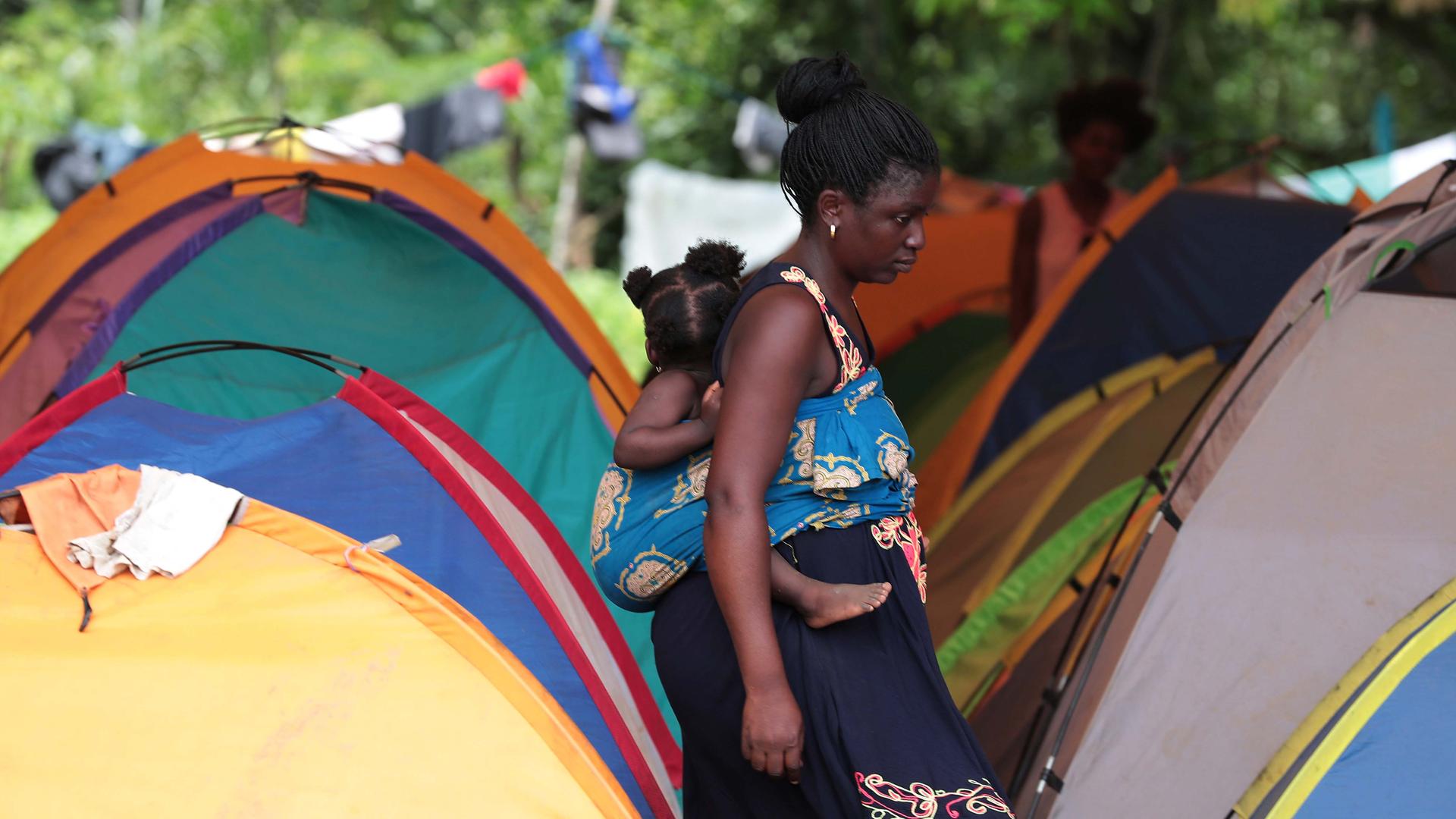With borders closed and entire countries on lockdown because of the coronavirus pandemic, many migrants are stranded. Some 2,000 people — many of them children under age 5 — have been detained for months in Panama, near the rainforest separating South and Central America.
Authorities in Panama are keeping migrants — most of whom hail from Haiti, but also from as far as Burkina Faso and Bangladesh — in a notoriously untamed stretch of rainforest known as the Darién Gap, as the rest of Panama observes a nationwide lockdown. Migrants are not allowed to move onward to continue their journeys.
While Juan Manuel Pino, the public safety minister, has said immigration officials are taking measures to ensure the safety of migrants, Nadine Gonzalez, the local mayor, says some migrants have already shown symptoms of the coronavirus.
Related: Xenophobia ‘takes its toll’ as Trump works to curb immigration
In a video uploaded to social media from the Darién Gap earlier this month, two unidentified Haitian men asked to be allowed to continue traveling because they were being kept in precarious conditions. They were sleeping on dirt, and they had run out of money to buy food after being forced to stay in the area for more than two months, they said. They also had no access to medical care.
“We’re dead here.”
“We’re dead here,” one of the men said in the video.
The Darién Gap is about 60 miles of thick and humid rainforest mainly controlled by drug traffickers and petty criminals. Many people die or get killed as they attempt to cross — but others keep trying because it’s the only land route connecting South America to Central America.
Representatives from UNICEF and the International Federation of the Red Cross said they were working to guarantee migrants can access basic provisions such as drinking water and hygiene kits in order to prevent the spread of an outbreak.
“We are scaling up our response,” said Kyungsun Kim, the UNICEF representative in Panama. “It might not be as fast as we would like to, but we are doing our best.”
Many of the migrants were stopped in the town of La Peñita, which has a population of just over 100, many of whom are subsistence farmers, Gonzalez said. Local officials and a Panamanian non-profit were working to distribute food to local residents who are no longer working and themselves have limited access to food.
